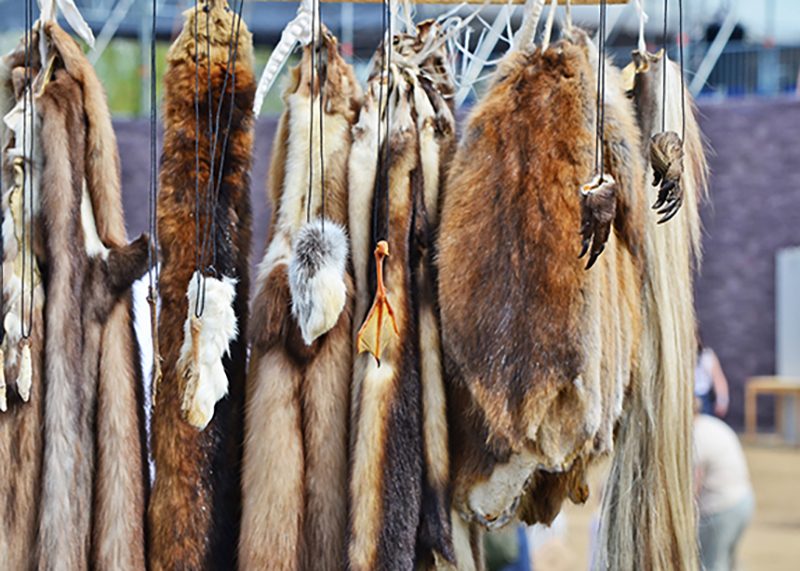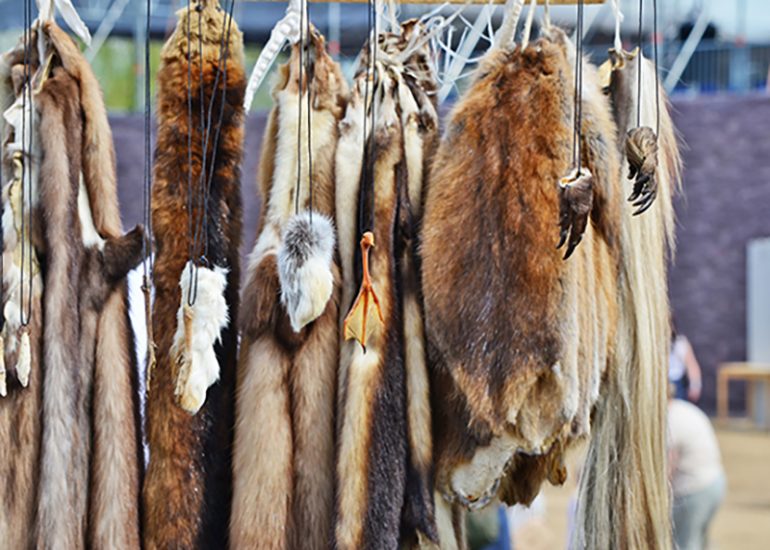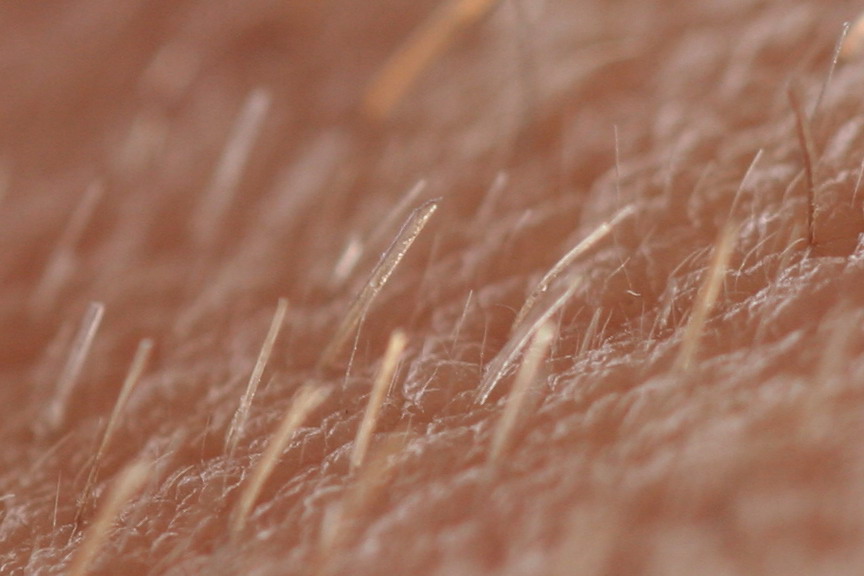J.T. Bushnell

He turned into the gravel lot of a small rodeo arena beneath the watchful sentry of a hundred-foot Hereford. The weather was gray even in August and he buttoned his old flannel as he made his way toward the tin-roof meeting hall, where he browsed the wares to pass time. The otters pelts, once endangered, were new to him, but the bottles of unadulterated urine were as familiar as his father’s voice. He went outside and stood for a few minutes at a snaring demonstration, and seeing the loop of wire hanging in the brush gave him a quick hit of the old feeling, coming upon a site where he had a whole family of coyotes choked out, their eyes bulging, tongues hanging, pelts perfectly intact. It was a good feeling, one of cunning and self-sufficiency and interconnectedness and profit and many other things, and he told himself to hang onto it during his talk.
He didn’t know why the North Dakota Fur Takers Association called it a rendezvous, but he supposed it was because they didn’t take kindly to the bureaucracy and oversight implied by a word like “convention.” These were men in camouflage jackets and hats, blue jeans and shitkickers, men with knives on their belts and rifles in their pickups and God on their side. He was from Northern Down, the company that bought their coyote and bobcat pelts and affixed them to the collars of $1600 coats, which were sold to chic urban women interested in humane practices and traceability. He was there to convince the trappers that the interests of these women were their interests too. To any undergraduate studying marketing, this would be a truth so obvious it would go unsaid. Here, it took some saying, and the saying was up to him.
It went about how he’d expected it to. Though he explained it all with clear logic and plain language, the moment he said what he wanted—to ride along and observe their practices—they bristled. They had no reservation about shouting him down, and he listened to their arguments patiently, picking at his fingernails, an old regret welling inside him. Then he told them that he thought what they thought, that he admired their humane practices and wanted consumers to admire them too. Without consumers, he said, they couldn’t move product, and if they couldn’t move product, they couldn’t buy pelts. To the trappers this could mean only that he was against them.
And so he explained it again, emphasizing his own background, assuring the trappers that he had as little interest in uncovering violations as they did in having violations uncovered, keeping up his good nature because he knew that kindness meant more to them than logic, and also because it felt good to speak to them as he should have spoken to his father thirty years earlier, when he’d still had the chance. He’d lost that chance when his father had been attacked by a cougar he was trying to release from a foot trap. It was against regulation to take a cougar, so you had to find the courage to loop a snare around its neck from the end of a four-foot pole, choke it unconscious, and work it free. His father had done it many times before, but something had gone wrong. In some ways it was a good death but in other ways not, and he’d flown back to North Dakota to take over his father’s lines as penance. For three years he’d renewed waterfowl protection contracts, set up snares like tributes in shelterbelts and marshland and homesteads across four counties, carried carcasses to the back of his father’s pickup and then to the skinning shed, collected traps from nine-foot snowdrifts breathing the razors of North Dakota cold.
And why? This question didn’t occur to him until he was freeing a cougar himself one morning and the same thing happened to him that had happened to his father. The cougar came to before he’d reached his pickup and charged him, and he was alert enough to blast his .22 at the beast, catching it in the shoulder and sending it running off the other direction. At first he was shaken up, then pensive. Sitting in the truck cab afterward, sipping coffee from the Thermos lid, he found he could walk into his father’s death and look around. He could feel the old man’s fear, his pain, and most of all his loneliness. He knew then that it was too late to compensate for anything, that this work had just been lost time and self-punishment. The next week he’d collected his units and given them away. He’d flown back to Seattle to finish college. He was done with trapping for good.
And yet here he was now, listening to these men as he’d never listened to his father, nodding sympathetically at their demand for an affidavit assuring anonymity. He made it sound as though the company was flexible enough to provide one, though it undermined the accountability it was trying to sell its customers. While they all stood in line for the buffet afterward, he fielded their invitations, jotting them into the Moleskine he allowed himself even in these parts, knowing already how the whole process would go. They would bring sandwiches and coffee for him, would tell about the local history and landscape as they drove from site to site, would open up to him about their childhoods and then cover up their earnestness with the kinds of jokes that would get a man fired from the Seattle headquarters. They would drop him off at his rental car, shake his hand, and wish him well, and then feel personally betrayed when they heard about their names dangling from the sleeves of Northern Down parkas.
J.T. Bushnell is the author of The Step Back, a novel forthcoming from Ooligan Press in May 2021. He lives in Eugene, Oregon. Follow him on Twitter at @JTBushnell1.


